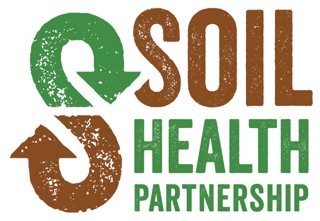 |
The importance of soil health for farmers and the environment took center stage recently as a new Science Advisory Council convened to kick off the Soil Health Partnership, formed by the National Corn Growers Association with support from the Walton Family Foundation and Monsanto.
“The health of a farm depends on the health of its soil, and that’s what makes this new program an important one for our organization,” said NCGA President Martin Barbre, a corn grower in Illinois. “We developed the Soil Health Partnership with our partners to help our growers be the best farmers they can be, and ensure that their farmland remains valuable and productive for future generations.”
The mission of the Soil Health Partnership is to catalyze enhanced agricultural sustainability and productivity by demonstrating and communicating the economic and environmental benefits of improved soil health. The initial objectives of the program include building a network of demonstration research farms in key corn states; developing recommendations to farmers on a variety of soil management practices aimed at improving productivity, profitability and environmental outcomes; increasing adoption of those recommendations beyond the network of demonstration farms; and increasing the visibility and importance of sound soil management.
In addition to the Science Advisory Council, the Nature Conservancy and the Environmental Defense Fund are providing technical support to the Soil Health Partnership as it kicks off in 2014.
“We look forward to helping demonstrate and measure how different conservation practices can improve soil health and simultaneously lead to increased yields, profitability and environmental performance,” said Sean McMahon, The Nature Conservancy's North American Agriculture Program Director. “We hope that this innovative partnership will help lead to widespread adoption of conservation practices that improve soil health and ultimately improve water quality at a watershed scale.”
A key part of the success of the Soil Health Partnership is the Science Advisory Council, Barbre said, the experts who will advise the partnership about the identification, measurement and evaluation of best practices that can improve soil health while boosting yields and improving environmental outcomes.
“Helping farmers understand what management practices help build healthy soils is a priority for this partnership, and important for everyone in the long run,” said Purdue’s Eileen Kladivko. “I’m happy to be able to offer expertise to help farmers become even better stewards of the environment.”
Wayne Honeycutt of the USDA agreed about the importance of grounding conservation practices in sound science.
“Enhancing soil health is one of the most important things we can do for this and for future generations,” Honeycutt said. “That’s because enhancing soil health allows us to simultaneously address so many of our most pressing natural resource needs. It allows us to address water quality, farm profitability, resilience to extreme weather, economic risk, wildlife needs, and many others. The Soil Health Partnership will provide a platform to measure and demonstrate these benefits, building on what is known from academic research and connecting it directly to on-farm management approaches.”






Post a comment
Report Abusive Comment